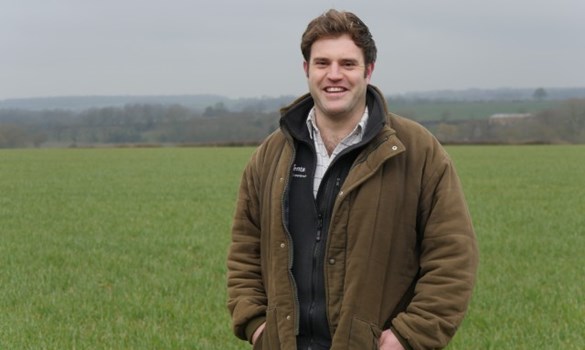Monitor Farm meeting: Northampton
What can we learn from other industries?
Programme
- Registration and refreshments
- Introduction: Judith Stafford, AHDB Knowledge Exchange Manager
- Monitor Farm Review: Rick Davies, Northampton Monitor Farmer
- Effects of weather
- How are crops looking?
- What we should have done differently
- Marketing update
- Plans going forward including any changes
- Looking to the future at Northampton Monitor Farm – developing a resilient business: Rick Davies
- Recap of some of the issues covered at the last meeting (organic farming):
- Why we need to “think outside the box”
- What we have addressed so far
- Ideas for business survival in uncertain times
- Setting the scene – background to this meeting - what can we learn from other industries?
- What are other industries doing well and how do they achieve it?
- Recap of some of the issues covered at the last meeting (organic farming):
- What can we learn from other industries? Alan Brighton
- Personal development
- Setting goals
- Effective delegation
- Learning and implementing important subjects
- Testing and measuring progress
- Case study – farm business diversification: George Davies, George Davies Turf
- How the ideas discussed in the first session have been implemented successfully
- Question and answer session followed by discussion
- Summary and key points
- Event close
About Northampton Monitor Farm
Rick Davies farms 404ha in partnership with his parents, trading as MTH Davies, between Northampton, Bedford and Milton Keynes. He grows Group 1 milling wheat, malting spring barley and HOLL oilseed rape, adding value where ever possible all for premium markets. The soil is a mixture of sandy loam, corn brash, silt and heavy clay loam. Crops are currently established with a Claydon-based direct drill and Rick is open to looking at other establishment methods. The Davies family have a number of diversification activities from Office and industrial lets to boxed beef and self-storage these other incomes allow the business to be more risk adverse. During the three years of the Monitor Farm programme Rick hopes to increase his business resilience, reduce fixed and variable costs while maintaining yields and improve soil health for a sustainable future.
Find out more by visiting the Northampton Monitor Farm page.
About Monitor Farms
AHDB Monitor Farms bring together groups of like-minded farmers who wish to improve their businesses by sharing performance information and best practice around a nationwide network of host farms. AHDB organises and facilitates Monitor Farm meetings for farmers, who own and operate the scheme – by farmers, for farmers. Monitor Farms are part of the AHDB Farm Excellence Programme. Each Monitor Farm project runs for three years.


